Finding yourself asking “Why won’t my dog poop outside?!” This is a more common question than you’d think. There are all kinds of reasons that your dog doesn’t want to poop outside—maybe the weather isn’t so great, or your dog has an underlying medical issue. It will also depend on whether they’re a puppy or an adult. Finding the reason is the first and most important step to fixing the problem; everything else is about patience.
It can be frustrating if your dog refuses to poop outside, but we are here to help! In this article, we’ll go over common reasons that dogs won’t poop outside and how to handle each one.

Effectively Cleaning Up
Doing what you can to prevent repeat accidents and ensuring that your home is properly sanitized is an important part of this issue. You’ll need a multi-purpose cleaning solution that will allow you to work across all the surfaces in your home. We suggest an enzyme cleaner that is pet-friendly and can be used on all hard and soft surfaces.
If you're looking for an all-in-one, pet-friendly, enzyme cleaner, we highly recommend the Hepper Advanced Bio-Enzyme Pet Stain & Odor Eliminator Spray.
It eliminates tough stains and odors easily and is excellent for accident prevention. Plus, it comes with a 100% satisfaction guarantee! Click here to order now. At Dogster, we’ve admired Hepper for many years, and decided to take a controlling ownership interest so that we could benefit from the outstanding products of this cool pet company!

The 8 Reasons That a Dog Might Not Poop Outside
First, we need to go over the reasons that a dog won’t poop outside. Has your dog stopped suddenly, or have they never actually gone outside before, if they are only a puppy? In the latter scenario, you must go through the entire potty training process. For the former reason, you’ll need to figure out why your dog has stopped. In some cases, you might already know, but there are occasions when it will take you a little while to figure it out.
The following situations are common reasons that dogs might stop pooping outside.
1. The Dog Isn’t Fully Potty Trained

This one should be evident if you’re still training your puppy. If your dog has recently been housetrained, it’s entirely possible that the training isn’t complete. Some dog owners believe that potty training has gone well and begin to allow their dogs full access to the house, but then accidents start to happen.
Generally, your dog is probably not fully house-trained until there have been no accidents inside for at least several months.
Ensure that you take your puppy out on a leash at least every hour, and give them plenty of praise and a treat when they poop. If your dog doesn’t go at that time, return inside and try again in 20 minutes. Observe their behavior closely and if they become fidgety as if they’re looking for something in particular, it may be your sign they’re getting ready to go.
Eventually, you’ll be able to gradually increase the time between taking your dog outside, and at some point, you’ll have yourself a dog that poops outside! Time going outside when it’s most likely your puppy may need to poop, such as first thing in the morning, before and after a meal, and certainly for puppies at least twice before bedtime, as they are not able to hold it as long as adult dogs are.
2. Weather
Dogs can be drama queens! Some dogs don’t want to go outside if it’s snowing, raining, or the grass is wet.
You can invest in coats or boots for your pup. This can make them more comfortable with going outside in bad weather. It will also help keep them clean, and your house will stay clean as well. Also, consider shoveling a spot or placing a tarp in one area for your dog. You can also think about putting up a small canopy to give your pup a break from the rain outside.
Otherwise, be aware of the weather. Make plans around bad weather systems and ensure that you train your dog to stay outside during bathroom breaks.
3. Surface Pickiness
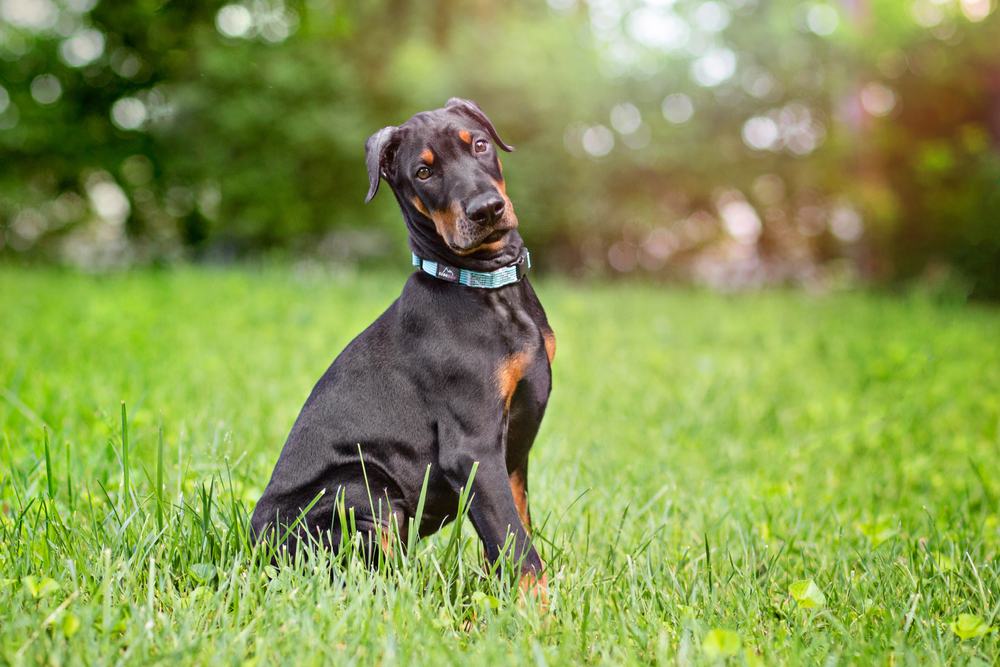
Dogs can be picky about what they go to the bathroom on. Some dogs prefer to go on grass or dirt, while others might prefer concrete. This can also partially explain why some dogs love to relieve themselves on your carpet or hardwood floors.
Once you’ve figured out what surface your dog prefers to go on, be sure there’s access to that kind of surface every time you take your dog out. Of course, if your backyard doesn’t have a suitable substrate, you’ll need to take your dog for a walk until you find the perfect patch of grass. You’ll need to do whatever you can to make your dog comfortable.
Some dogs will just never go in the back of their yard and will hold it in until they are taken for a walk.
4. Changes and Stress
When something changes in the household, it can also lead to stress for your dog. Moving to a new place, someone new moving in, changing up your dog’s schedule, and even making a change in your dog’s diet can cause a degree of uncertainty and stress. This kind of stress can also lead to pooping problems.
If you know the change is coming, start preparing your dog in advance with a slow and gradual transition. For example, if you need to take your dog outside for a bathroom break at 6:00 instead of 5:00, start by taking your dog out at 5:15. Then, a few days later, do it at 5:30, and so on.
Most changes can be dealt with similarly. New food requires a slow transition: Add ¼ cup of the new food to the old for a few days, then 1/3 new to the old, and so on. Food changes should be done gradually over 7–10 days. Is there a new person or pet moving in? A gradual introduction is in order. Slow introductions in quiet neutral areas are best and ensure that your dog and the newcomer have time apart.
5. Nervousness
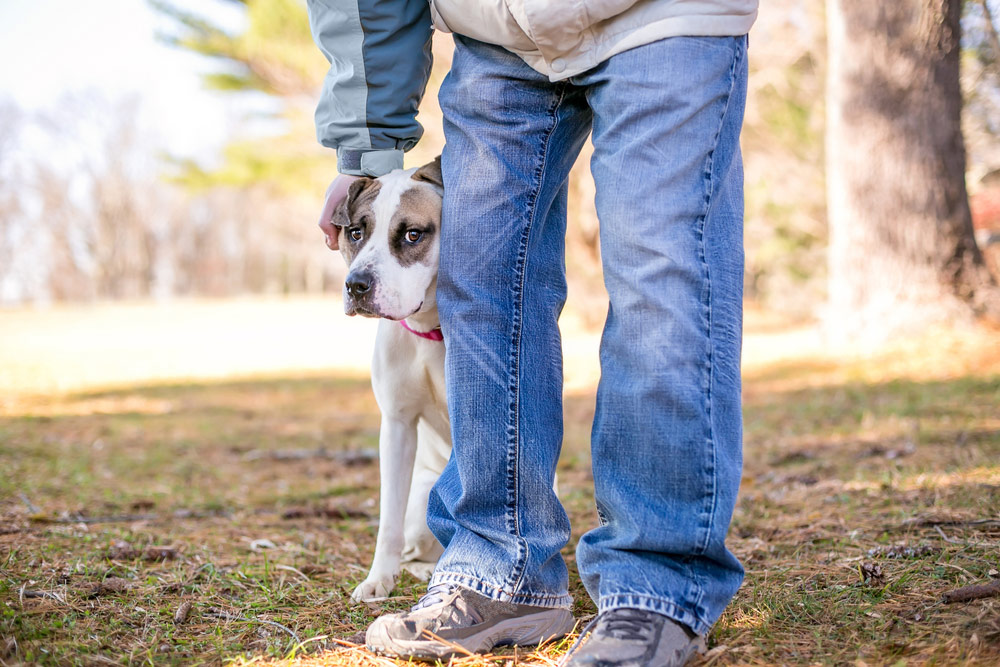
Your dog might refuse to poop outside because they are nervous. Nervous dogs might feel anxious when in the backyard or generally out, so they will be hesitant or fearful of being outside. This is usually the issue with dogs that have been used to living mainly indoors, without going out much. Sometimes this may be in the case of their owner being bedridden or having mobility issues, or they have had a very traumatic experience when being outside and have developed a fear of going out. These dogs will attempt to go back inside as quickly as they can, which means defecating isn’t a priority for them.
Plenty of time and patience is needed, and you should look into desensitization training with a professional. Take your dog into the yard, provide a treat or a toy, give them plenty of praise, and then go back inside. If you’re persistent and patient—and this may take many months—your dog will learn that nothing bad happens when outside, and you’ll be able to increase the time of these sessions. Often, help from a qualified behaviorist will be required, in some dogs.
Double-check that nothing in the yard might be causing them anxiety, like the neighbor’s dog or wind chimes. Look at your outdoor space with a critical eye so it can become an area that your dog will enjoy spending time in.
6. Easily Distracted
Some dogs are easily distracted, particularly the breeds with a high prey drive (looking at you, terriers)! The world is full of small things that dart and move quickly, and for some dogs, there’s just too much entertainment going on to bother with trivial things like pooping.
In some cases, the dog might start to poop early on but becomes distracted by a squirrel, and then it’s time to go inside. Your dog wasn’t finished, which you will discover in an unpleasant way.
Your best bet with an easily distracted dog is to take them to a designated pooping area. Keep your dog on the leash, and don’t move around much at all. That way, your dog will start to associate this one small area as the space where elimination occurs and nothing else. Don’t forget there should always be praise and treats after a success.
7. Medical Issue

If your dog was successfully pooping outside but suddenly stopped, it might be a medical problem. Sometimes, various gastrointestinal issues, such as diarrhea, intestinal parasites, constipation, or even anal gland issues, may lead to discomfort and urgency when needing to go to the toilet, and there’s just no time to get outside.
Some dogs might have a painful joint condition or impaired mobility, such as in the case of hip dysplasia, spinal issues, or arthritis, that makes eliminating painful. Squatting might hurt enough that the dog will avoid pooping until the last minute, and that might end up happening indoors.
If this is the case, you must take your dog to the vet. It’s always best to rule out a medical problem before focusing on other issues.
8. Fear or Excitement
Some dogs may also poop indoors when they’re scared, not choosing where to go. They will more commonly urinate from fear, or sometimes overwhelming excitement and joy, but they may poop as well. This can also happen when you have visitors around.
If fear, excitement, or having guests is causing your pooch to have urinary or poop accidents indoors, ensure to keep their environment calm, avoiding any overt stress or excitement, and take them for long walks and playtime before the anticipated event, so they have the opportunity to toilet. Consider crate training them and reward their calm behavior.
Sometimes you may need to ignore them when they’re overwhelmed with excitement, even placing them in a crate, such as in case of visitors, and after they have calmed down, they can have treats and attention.

When to Contact Your Vet
If you find that your dog’s behavior hasn’t improved after making any of the above changes, or you want additional advice about how to help, we suggest contacting a vet. While the above outlines potential causes and solutions, a vet can factor in behavior, diet, and environmental changes and help determine the right path for encouraging your dog to their business outside.
If you need to speak with a vet but can't get to one, head over to PangoVet. It's our online service where you can talk to a vet online and get the advice you need for your pet — all at an affordable price!


Conclusion
Some dogs can be just as picky as people! There are various reasons that a dog won’t poop outside, everything ranging from a medical issue to pickiness about the surface or a change in the household. Importantly, never punish your dog for eliminating inside. Clean up the mess, and use an enzymatic cleaner to eliminate the odor. This will prevent your dog from using the same spot again.
Secondly, praise your dog for any time they eliminate outside. Give them treats every single time! As long as you’re aware of the problem and willing to work with your dog and your vet to fix it, you can teach your dog to defecate outside with a little bit of time and patience.
Featured Image Credit: ThamKC, Shutterstock
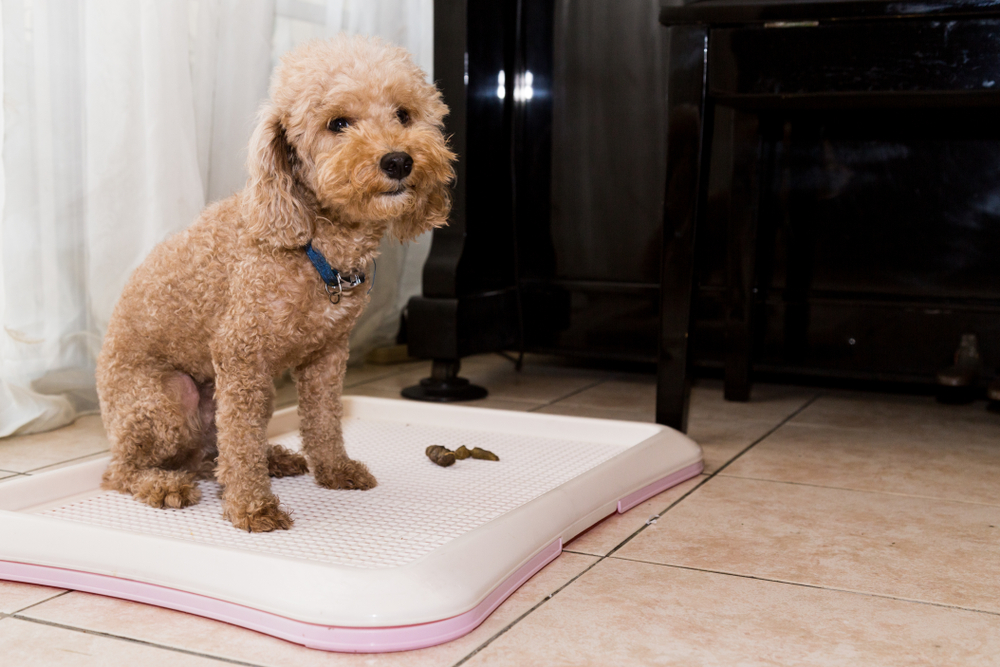


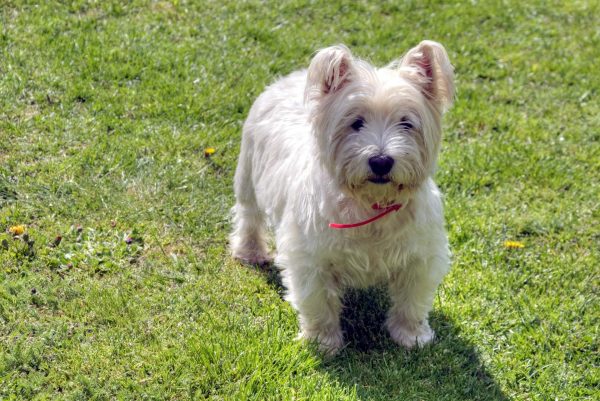

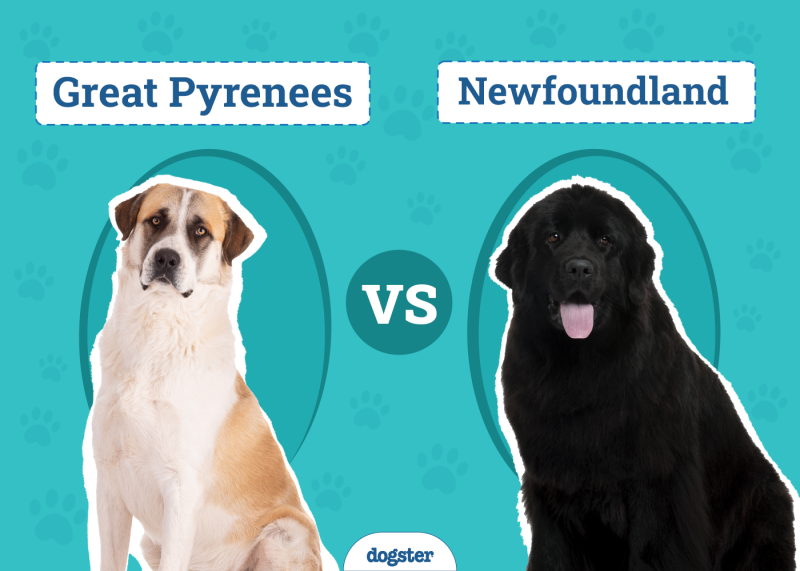
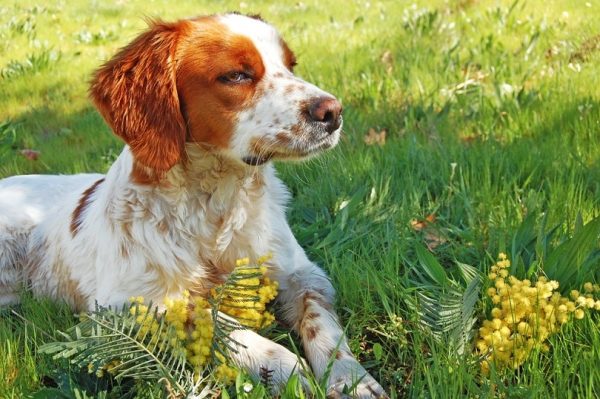
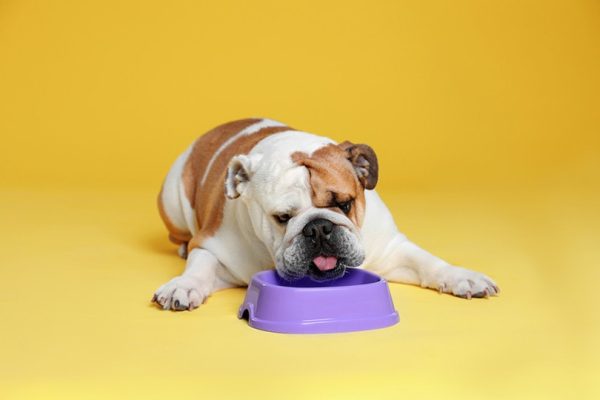
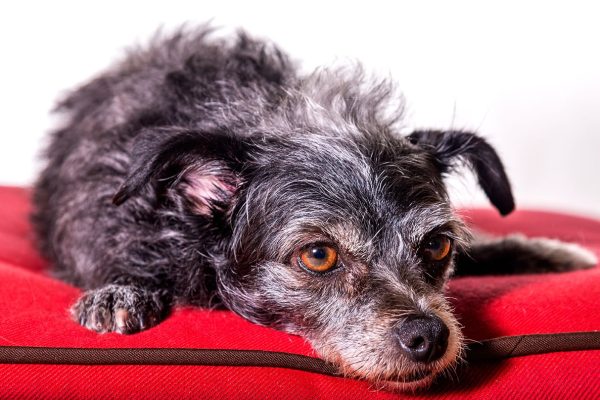


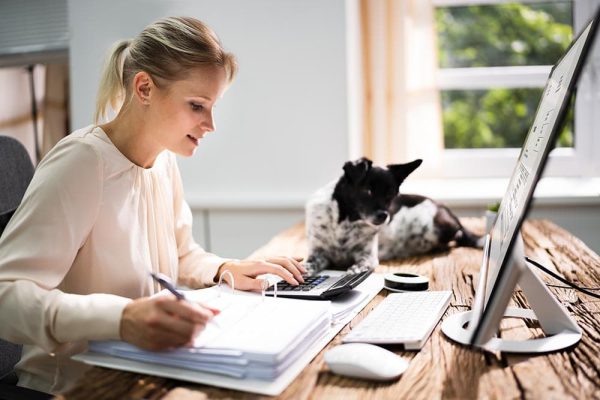


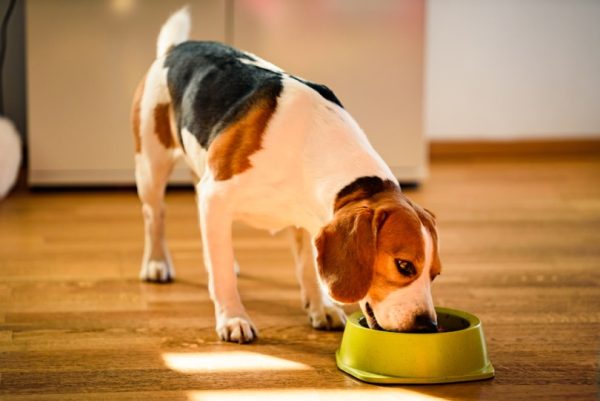
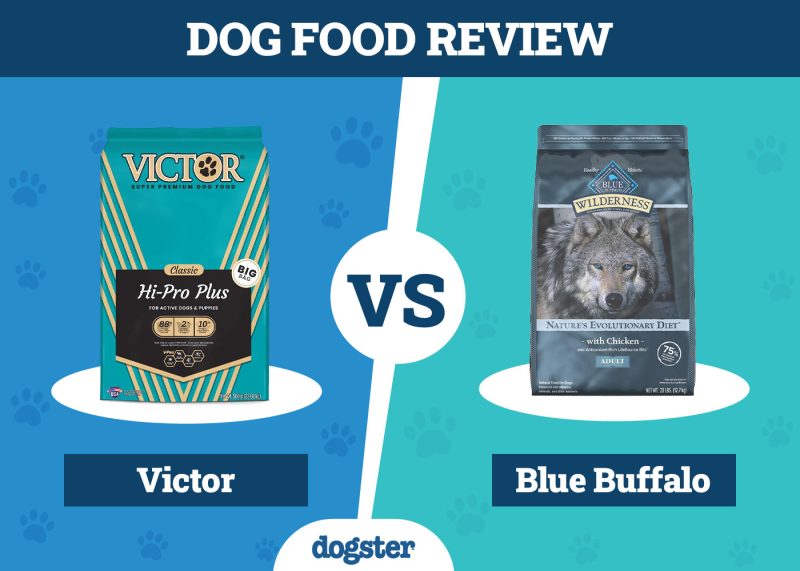


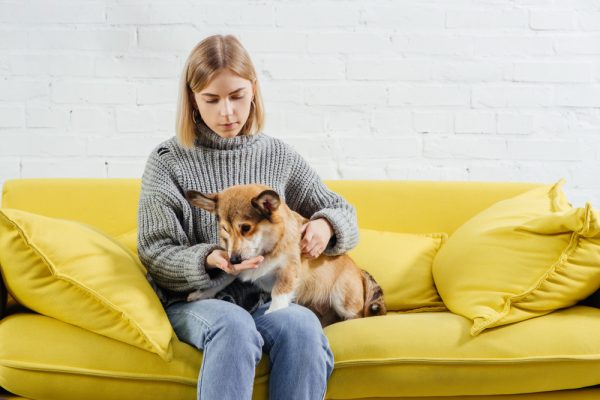




2 Responses
Okay l will continue with all of the suggestions you have given
Hi Darryl,
That’s great to hear! It sounds like you’re committed to helping your dog adjust, and consistency is really key.
Keep following the suggestions, stay patient, and celebrate small successes along the way. Over time, most dogs do learn to feel comfortable going outside.
Thanks for your comment!